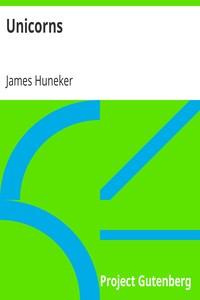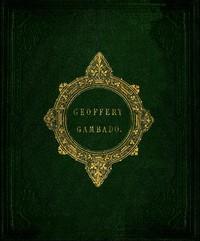|
|
Read this ebook for free! No credit card needed, absolutely nothing to pay.Words: 22058 in 5 pages
This is an ebook sharing website. You can read the uploaded ebooks for free here. No credit cards needed, nothing to pay. If you want to own a digital copy of the ebook, or want to read offline with your favorite ebook-reader, then you can choose to buy and download the ebook.

: The Christian Creed; or What it is Blasphemy to Deny by Besant Annie - Christianity Controversial literature@FreeBooksWed 07 Jun, 2023 THE CHRISTIAN CREED; OR, WHAT IT IS BLASPHEMY TO DENY London THE CHRISTIAN CREED, OR, WHAT IT IS BLASPHEMY TO DENY A struggle has began, which promises to be one of the fiercest that this century has seen, between the bigots and persecutors on the one hand and the supporters of free speech on the other. It appears, then, worth while to look closely into this Christian creed, which claims the right to imprison and torture men of pure life for non-belief in its tenets. Christianity threatens us with persecution here and damnation hereafter if we do not believe its doctrines. "He that believeth not shall be damned," says Jesus. "He that believeth not shall be imprisoned and pick oakum," says Mr. Justice North. The threat of damnation would trouble us little if it stood alone--we could put off consideration of that until we arrived in the other world; but the threat of imprisonment here is unpleasant. If we are to burn for ever hereafter, the Christians might really allow us to enjoy ourselves here; is their malice such a bottomless pit that an eternity of torture is not enough to fill it up? Let us see what we must believe on peril of damnation and Newgate. We must believe the "Holy Scriptures of the Old and New Testaments to be of divine authority;" we must believe each "one of the persons in the Holy Trinity to be God," while we also believe that there are not "more gods than one;" we must believe the "Christian religion to be true;" we are strictly forbidden to publish any "ludicrous matter relating to God, Jesus Christ, or the Bible, or the formularies of the Church of England as by law established," and are warned that we shall not be saved by our remarks being "intended in good faith as an argument against any doctrine or opinion." We must believe the Holy Scriptures of the Old and New Testament to be of Divine Authority. It is of divine authority that god made "a firmament in the midst of the waters" and divided the waters, putting some above it and some below, and this firmament is "heaven" . This heaven has windows in it which let the rain through , and when these windows are closed the rain stops . It has doors, through which the manna was rained down on the Israelites . This "sky" is very "strong," as is indeed necessary remembering all it has to support above it, and resembles "a molten looking-glass" . Another reason why it should be very strong is that god has "set" in it the sun, moon and stars. Some of the stars are large and solid, and require a very strong setting. It is of divine authority that god made grass and herb and fruit tree on the "third day of creation," the day before he created the sun, two days before he made fishes and birds, and three days before he made animals. In the face of this it is a mere trifle, my dear sceptical reader, that no herb could yield seed, no fruit tree could yield fruit, without the aid of the sun. It is quite true that a plant without the sun-rays can form no chlorophyll; that without chlorophyll no starch, no reparation nor growth of tissues can proceed. What are these mere botanical facts beside the divine authority of the Holy Scriptures? It is also true that in the study of fossils no traces of all these grasses, herbs, and fruit trees are found precedent to all animal life. That the earliest living thing which has left a trace was an animal, not a plant. That fishes precede fruit trees in the fossilised history of the globe, although fruit trees precede fishes in the divinely authoritative fable. These geological facts must follow the botanical, my heretic, and you must be content to take the Holy Scriptures on faith, for they are not even tales founded on fact. It is of divine authority that sun, moon, and stars were created on the fourth day, after the world had been in existence for three. It is true that to talk of a member of a solar system like our earth as existing three days before the central sun came into being is to talk nonsense. But that is of no importance if the nonsense is of divine authority. It is also true that the light travelling from part of the Milky Way at the rate of 186,000 miles per second would take 9,000 years to reach our earth, so that if the Holy Scriptures are of divine authority we should be unable to see these stars, which we nevertheless do see. Who would rashly put the testimony of everybody's eyes against the authority of this old book written in an unknown tongue, by an unknown author, at an unknown date? If the stars are there, they ought not to be, and if we can see them we ought not to be able to do so. I am not sure that they are not committing a silent and perpetual blasphemy by their very existence; but then Mr. Justice North cannot reach them to put them out, odious as is the outrage they commit on the feelings of the Christian public, and I doubt if the sentence of damnation threatened by Jesus would run in that distant spot. It is of divine authority that on the 6th day of creation, just 5,887 years ago, god created man, male and female. It is true that man has left his bones in the ground as a record of his existence hundreds of thousands of years ago, although he has only existed during 5,887 years. But that was a thoughtless and irreverent action on his part, which cannot be allowed to have any weight as compared with the divine authority of the Holy Scriptures. Men should not leave their bones about in caves and drifts as arguments for the wicked unbeliever and puzzles for the faithful soul. It is of divine authority that everything was once created in two different ways, perfectly incompatible the one with the other, and both equally true. The two stories of the creation are mutually exclusive; but, as they are both of divine authority, both must be believed, on peril of prison here and of damnation hereafter. It is blasphemy to deny that the world was covered with water, so that god was obliged to gather it away into one place to let the land appear, which forthwith brought forth from its moist surface herb and grass and tree , and that the world was at the same time so dry that god could not set in it the herb and plant which he had previously made . It is blasphemy to deny that the vegetation was brought forth by the earth itself at the mere command of god: "Let the earth bring forth grass," etc. . It is also blasphemy to deny that "the Lord God made... every plant of the field before it was in the earth, and every herb of the field before it grew," and that the reason for this creation before planting was that "the Lord God had not caused it to rain upon the earth, and there was not a man to till the ground" . Free books android app tbrJar TBR JAR Read Free books online gutenberg More posts by @FreeBooks

: Geoffery Gambado A Simple Remedy for Hypochondriacism and Melancholy Splenetic Humours by Cobbold Richard Bunbury Henry William Illustrator - Humorous stories; Horsemanship England Fiction@FreeBooksWed 07 Jun, 2023
|
Terms of Use Stock Market News! © gutenberg.org.in2025 All Rights reserved.






